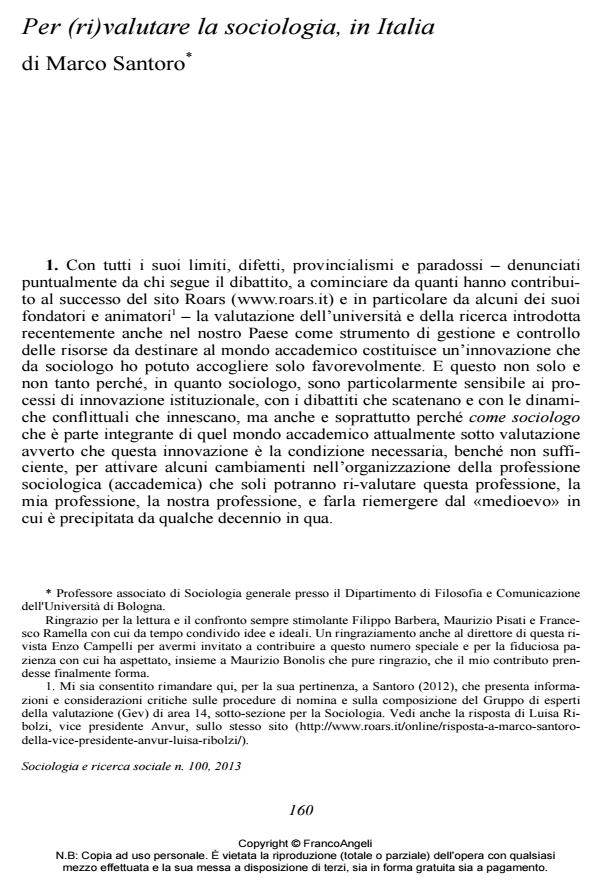To Re-Evaluate Sociology, in Italy
Journal title SOCIOLOGIA E RICERCA SOCIALE
Author/s Marco Santoro
Publishing Year 2013 Issue 2013/100
Language Italian Pages 10 P. 160-169 File size 601 KB
DOI 10.3280/SR2013-100015
DOI is like a bar code for intellectual property: to have more infomation
click here
Below, you can see the article first page
If you want to buy this article in PDF format, you can do it, following the instructions to buy download credits

FrancoAngeli is member of Publishers International Linking Association, Inc (PILA), a not-for-profit association which run the CrossRef service enabling links to and from online scholarly content.
The recent introduction by law of research assessment in the Italian academic system has triggered a wide debate especially focused on its weakness and paradoxes as well as its potential negative effects on disciplinary autonomy and freedom of research. Contrary to this vision, in this paper I argue that eva- luation mechanisms should be welcomed in those disciplinary fields - as sociology in Italy - which for historical, cultural and political causes have not been able to organize themselves as scientific communities, i.e. as communities of practice grounded on peer control and evaluation. The paper offers a brief sociological analysis of the social organization of Italian academic sociology, highlighting the deleterious effects on scientific communication and value recognition fostered by its segmentation in mutually exclusive, sometimes conflicting sometimes colluding, corporate groups (so called «component»). Far from being an assault on its freedom and autonomy, a state-backed system of evaluation may be instrumental to the creation and legitimation of a disciplinary culture of self evaluation and value assessment according to transparent, institutionalized and not provincial quality standards.
Marco Santoro, Per (ri)valutare la sociologia, in Italia in "SOCIOLOGIA E RICERCA SOCIALE " 100/2013, pp 160-169, DOI: 10.3280/SR2013-100015